For more information:
Email UsWe all are impacted by, and reap the benefits of, medical research discoveries. From over-the-counter drugs, to healthcare policies and educational interventions, many of these advancements are a result of incredible feats, decades of work, and sometimes serendipitous events. Join us as we sit down with Harvard researchers to discuss these captivating behind-the-scenes stories of research.
February 26, 2020
The Skin Microbiome and Healing Wounds
“Large wounds have the same risk of infection as small wounds,” explains Victor Neel, PhD, director of Massachusetts General Hospital’s Dermatologic Surgery Unit. In this podcast, Neel discusses his research examining the interplay between skin bacteria and infection post-surgery.
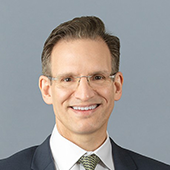
Victor A. Neel, MD, PhD, is a board-certified dermatologist and has completed more than 24,000 Mohs procedures, making him one of Boston’s most experienced and knowledgeable Mohs surgeons. Neel is the director of Massachusetts General Hospital’s Dermatologic Surgery Unit. He graduated from Princeton University, received his MD from Cornell University Medical College, and his PhD in genetics from Rockefeller University. He completed his dermatology residency at Brown University School of Medicine. Afterwards, he became a fellow in Mohs Micrographic Surgery and Cosmetic Dermatology at the UCLA School of Medicine.
Professionally, Neel is a member of several professional associations including American College of Mohs Surgery (ACMS) and the American Society for Dermatologic Surgery (ASDS), where he is a preceptor (teacher) for several procedures. Neel is also assistant professor of dermatology at Harvard Medical School. He is a co-author of numerous peer-reviewed and non-peer-reviewed publications in print, online media, and other media regarding issues such as skin cancers and Mohs surgery, as well as minimally invasive procedures to help aging skin. He has a particular interest in the biology of skin cancer and the genetics of aging, and has several ongoing clinical studies and basic research projects.
February 5, 2020
Networks of Care
“Our experience as physicians and patients is kind of getting lost in this web of the healthcare system,” says Michael Barnett, MD, Brigham and Women’s Hospital. In this podcast, Barnett discusses his research analyzing patient sharing networks and their associated cost of care, as well as his work evaluating policies aimed at reducing opioid use disorder.
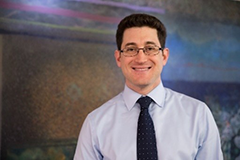
Michael Barnett, MD, is assistant professor of health policy and management at the Harvard T.H. Chan School of Public Health and a primary care physician at Brigham and Women’s Hospital (BWH). Barnett received his MD from Harvard Medical School and completed a residency and fellowship in primary care and general internal medicine at BWH. Barnett’s research focuses on understanding and improving the healthcare delivery system. His interests relate to the role of physicians in the opioid epidemic as prescribers and providers of treatment for opioid use disorder. He has also worked on studying innovative models for healthcare payment and care delivery. His research has been published in the New England Journal of Medicine, JAMA, British Medical Journal, and Annals of Internal Medicine. He has also been featured or cited in The New York Times, Washington Post, National Public Radio, CNN, and The Economist. Barnett has received best research of the year awards from the Society of General Internal Medicine and Academy Health. He is the recipient of a Career Development Award from the National Institute on Aging.
January 29, 2020
Radical Innovation
Jeff Karp, PhD, Brigham and Women’s hospital, discusses the concept of radical simplicity, which he describes as “breaking down the problem into simple terms that you can test.” Karp explains how he used this approach in stem cell therapy research to inform the translational and commercialization process.
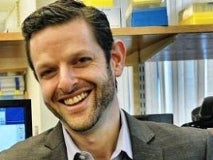
Jeff Karp, PhD, is a professor of medicine at Brigham and Women’s Hospital, Harvard Medical School. He is also a principal faculty member at the Harvard Stem Cell Institute, and an affiliate faculty member at the Broad Institute and at the Harvard-MIT Division of Health Sciences and Technology.
Karp works in the fields of drug delivery, medical devices, stem cell therapeutics, and tissue adhesives. He has published over 125 peer-reviewed papers, with >18,500 citations, and has given over 300 invited lectures. He has over 100 issued or pending national and international patents. Several technologies developed in his lab have led to multiple products currently in development or on the market and to the launch of seven companies that have raised over $300 million in funding. Technologies include high-tech skincare, tissue adhesives and 3D printed biomedical devices, immunomodulation with biologically responsive materials, small molecule regenerative therapeutics with an initial target of hearing loss, cannabinoid therapeutics, biomedical devices to improve child safety, needles that automatically stop when they reach their target, and a bioengineered luminal coating for controlled GI targeting.
January 8, 2020
A Career in Advancing Neuroimaging
“I think some of the most exciting areas have been where there are no guideposts,” says Martha Shenton of Brigham and Women’s Hospital. In this podcast, Shenton reflects on her career in neuroimaging, discusses her research looking at schizophrenia, and gives advice to aspiring researchers.
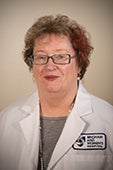
Martha Shenton, PhD, is a professor in psychiatry and radiology at Brigham and Women’s Hospital, founding director of the Psychiatry Neuroimaging Laboratory at Harvard Medical School, and a health scientist at the VA Boston Healthcare System. Shenton and her team have been developing and applying MRI techniques to the study of schizophrenia, and she is now working to advance our understanding of mild traumatic brain injury using advanced MRI techniques. Shenton has authored over 300 peer-reviewed empirical articles and proceedings, and has received numerous awards throughout her career.
August 15, 2016
Cows to Coumadin with Dr. Elliott Antman
In our first episode Dr. Elliott Antman, Associate Dean of Clinical and Translational Research at Harvard Medical School, shares the fascinating story of how medical issues in cows led to the discovery of one of the most widely used drugs in America today.
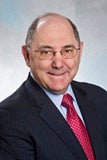
Bio: Elliott Antman, MD, is professor of medicine and an associate dean for Clinical/Translational Research at Harvard Medical School, a senior investigator in the Thrombolysis in Myocardial Infarction (TIMI) Study Group, and a senior physician in the Cardiovascular Division of Brigham and Women’s Hospital in Boston, Massachusetts. He was president of the American Heart Association (2014-2015) and is now the immediate past president. The American Heart Association honored him with the 2016 Paul Dudley White Award.

